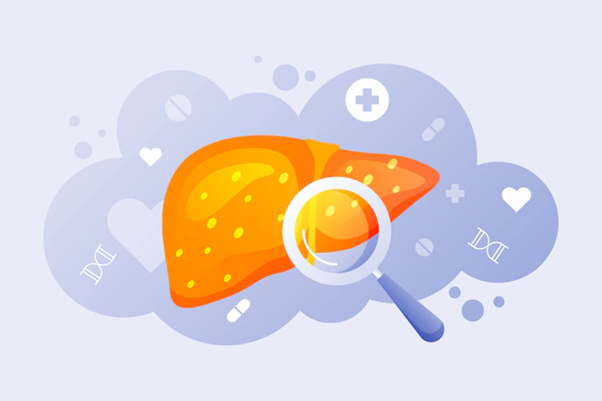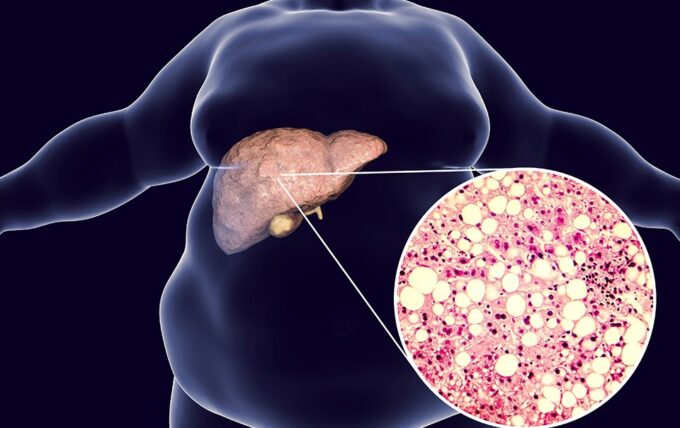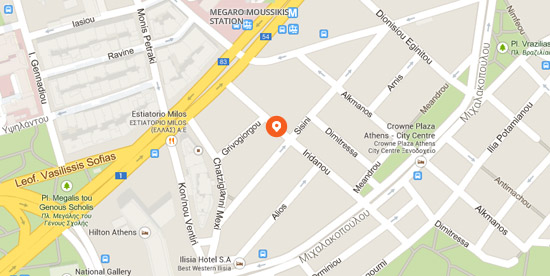Fatty liver disease and nutrition
Introduction
Fatty liver disease, also known as hepatic steatosis, is a condition characterized by the excessive accumulation of fat in liver cells. This condition can be due to alcohol consumption (alcoholic fatty liver disease) or can occur without alcohol (non-alcoholic fatty liver disease, NAFLD). NAFLD is linked to other factors such as obesity, type 2 diabetes, metabolic syndrome, including high blood pressure (hypertension), hypercholesterolemia, and insulin resistance.
In recent decades, more people have developed fatty liver disease due to the global rise in obesity and poor diet. It is now the most common liver disease in the world. In Greece, as in many other developed countries, there has been a significant increase in cases of fatty liver disease. If untreated, it can lead to more serious complications, such as liver cirrhosis and hepatitis (non-alcoholic steatohepatitis, NASH). NASH can cause swelling and liver damage due to fat deposition, potentially leading to severe liver scarring (cirrhosis) and even liver cancer. The damage is similar to that caused by excessive alcohol consumption.

What Causes Fatty Liver Disease?
We do not fully understand why fat accumulates in the livers of some people and not others, nor why it progresses to non-alcoholic steatohepatitis in some cases.
Fatty liver disease is caused by:
- Increased body weight (overweight/obesity).
- Genetic predisposition.
- Insulin resistance.
- Type 2 diabetes.
- High levels of blood lipids, especially triglycerides.
Other contributing factors include:
- Family history of fatty liver disease and/or obesity.
- Growth hormone deficiency.
- Metabolic syndrome.
- Obesity, especially around vital organs.
- Polycystic ovary syndrome.
- Sleep apnea.
- Pituitary gland disorders.
How Can Diet Help?
Diet plays a central role in improving liver health, particularly in cases of NAFLD. Proper foods can reduce inflammation, promote fat burning, and improve liver function. A diet high in fat and sugar, along with alcohol consumption, can cause fat accumulation in the liver, leading to complications.
Frequently Asked Questions about Diet and Fatty Liver Disease
What is the best diet for fatty liver disease?
The best diet for improving NAFLD is the Mediterranean diet, which includes:
- Fruits and vegetables: Rich in antioxidants that can help reduce inflammation.
- Olive oil: High in monounsaturated fats that improve liver function.
- Fish: Rich in omega-3 fatty acids, such as cod, anchovies, mackerel, and sardines, which help reduce liver fat.
- Whole grains: Such as fiber-rich bread, oats, and whole grain pasta, which help regulate blood glucose.
What foods should I avoid?
To reduce liver fat, avoid:
- Processed foods high in trans fats, like fried foods and processed snacks.
- Foods rich in sugar or simple sugars, such as fructose, found in soft drinks, sports drinks, sugary teas, juices, and high-sugar desserts.
- Saturated fats from red meat and full-fat dairy products, which exacerbate fatty liver disease.
What practical changes can I incorporate into my daily routine?
- Replace butter with olive oil in salads and cooking.
- Choose whole grains over processed foods.
- Opt for low-fat protein sources like fish and legumes instead of red meat.
- Drink green tea, which has strong antioxidant properties that may help reduce liver fat.
How Can Physical Activity Help?
Regular exercise, such as walking, swimming, or cycling, can reduce liver fat, improve blood glucose levels, and promote weight loss. Aim for at least 150 minutes of exercise per week.
What Else Can Help besides Diet?
In addition to diet, the following strategies can help:
- Weight loss: Reducing weight by 5-10% of the starting weight can significantly improve liver function.
- Αlcohol limitation: Even if you do not have alcoholic fatty liver disease, reducing alcohol intake can help lower inflammation and improve liver health.
- Professional dietary counseling: A specialized dietitian can create a personalized nutrition plan to help reduce liver fat and address your specific needs.
Conclusion
Fatty liver disease can be managed by adopting a balanced, healthy diet, reducing excess body weight, and increasing physical activity. The Mediterranean diet, combined with regular physical activity and reduced alcohol intake, can significantly reduce liver fat and improve overall health. Consulting with a professional dietitian can help you better manage the condition and achieve long-term improvements.








